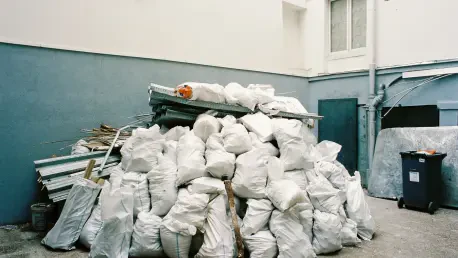Hotels today face an inherent challenge in managing their environmental impact while maintaining operational efficiency. One area that often escapes attention is the disposal of outdated Packaged Terminal Air Conditioner (PTAC) units. With technological advances, hotels frequently replace these units, leading to large volumes of waste that must be managed sustainably to avoid environmental and regulatory issues. In an industry heavily driven by sustainability and eco-friendly practices, finding suitable disposal methods for PTAC units becomes crucial.
Importance of Sustainable Disposal in the Hotel Industry
Sustainable disposal continues to be a focal point for the hotel industry, driven by both a commitment to sustainability and compliance with evolving regulations. Proper disposal of PTAC units gains significance due to the potentially harmful components they contain, such as refrigerants. These components have a significant impact on the environment if not handled correctly. Companies like RoomOne lead the charge by offering no-cost recycling programs, assisting hotels in seamlessly transitioning to more sustainable operational practices. Through innovation and strategic partnerships, hotels align their operations with environmental regulations, simultaneously enhancing economic profitability.
Current Trends and Innovations in PTAC Disposal
Trends in Sustainable Practices and Their Impact
Recent trends reflect an increase in the adoption of sustainable practices concerning PTAC disposal. Collaborations between the hospitality and waste management sectors lead to impactful strides in recycling technologies. The emphasis on sustainability is not just a regulatory requirement, but also a shift in consumer expectations and corporate responsibility. This shift has fostered collaborations and the improvement of recycling technologies, underlying the growing acknowledgment of environmental responsibility among industry players.
Market Performance and Future Outlook
Statistics reveal an industry steadily embracing sustainable waste management practices. Growing awareness and technological advancements highlight potential growth areas. Projections indicate an uptick in environmentally conscious operations, presenting opportunities for hotels to capitalize on emerging sustainable practices, thereby enhancing reputation and drawing environmentally aware clientele. Exploring advances in green technologies serves as a critical area for the industry, spurred by both consumer demand and regulatory imperatives.
Challenges in PTAC Unit Disposal
Despite progress, challenges persist in the form of technological limitations, financial costs, and stringent regulations. The complexity of safely disposing of refrigerants and other components entails substantial logistical and financial concerns for hoteliers. However, partnerships and innovations provide paths forward. By exploring collaborative efforts, the industry can mitigate these challenges, optimize logistics, and reduce costs, paving a path toward achieving more sustainable disposal methods effectively.
Regulatory Framework Impacting PTAC Disposal
The regulatory landscape imposes significant influences on how PTAC disposal is conducted. Compliance with environmental laws dictates operational choices, underlining the need for stringent adherence to handling and disposal norms. Regulations promote environmentally sound practices by enforcing standards that encourage the recycling and reuse of components. These legal frameworks catalyze industry change, prompting hotels to fulfill not only legal obligations but also embrace a principal role in environmental stewardship.
Future of Sustainable Waste Management
The path forward for sustainable waste management in the hotel industry involves embracing cutting-edge technologies and anticipating shifts in consumer preferences. Future trends may see innovative techniques, including digital solutions for waste tracking and advanced recycling methods, leading the way. As the industry becomes increasingly automated, the role of sustainability extends beyond compliance, driving operational innovation and efficiency, ultimately reshaping industry norms and establishing new benchmarks for environmental responsibility.
Conclusion and Recommendations
In light of actionable insights, it is evident that sustainable disposal of outdated PTAC units embodies both a challenge and an opportunity for the hotel industry. RoomOne’s program illustrates how integrated waste solutions can address pressing regulatory issues while promoting eco-friendly values. Hoteliers should explore strategic partnerships and invest in innovation, paving the way for enhanced sustainable practices. By prioritizing these measures, hotels not only adhere to regulations but also gain a competitive edge in an ever-evolving market, contributing to a greener footprint and setting a standard for environmental responsibility.









